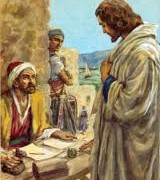I keep a small rendition of this painting over my desk to remind me of God’s heart for all nations and tribes. The artist, Hyatt Moore, mentions on a video that explains the concept and process, that an African-American woman viewed the painting and remarked, “This is the first time I have felt invited.”
Hyatt mentions that the painting should actually be entitled “The Next Supper” because it depicts the renewal of fellowship around the Lord’s Table when He comes again. Each of the twelve individuals depicts a particular ethnic group. Interestingly, Hyatt says that the most difficult person to paint was Jesus. He would never consider painting Him as a caucasian–that wasn’t the issue. It is just….how do you paint Jesus?
As you reflect on the painting, what insights come to your mind?
For me, I see a bunch of people who can’t understand each other linguistically. Given the confinements of their own culture, they are unable to get along. Except for the man in the middle. They all look to Him. Only in Him can they get along, much less live together in unity. At that table, there is neither Afghani nor Maasai, neither Native American nor Mongolian, neither black nor white, for they know that “Christ is all, and in all” (Colossians 3:11).
That is why we must pursue mission, so that the good news of the only Unifier can reach those hidden in their cultural enclaves. Each of us must take a role as Prayer, Giver, Sender, or Goer.
And that is why we must press on toward intercultural mutuality, where we sit around the table of Jesus together, all on the same level. There we learn from Him together. There we see Him more fully through the hearts of our brothers and sisters who see Him in their own unique ways. This is why our churches should not be places we retreat to those just like us, but where we search for ways for all to feel genuinely invited to the table…as in truth they are.



